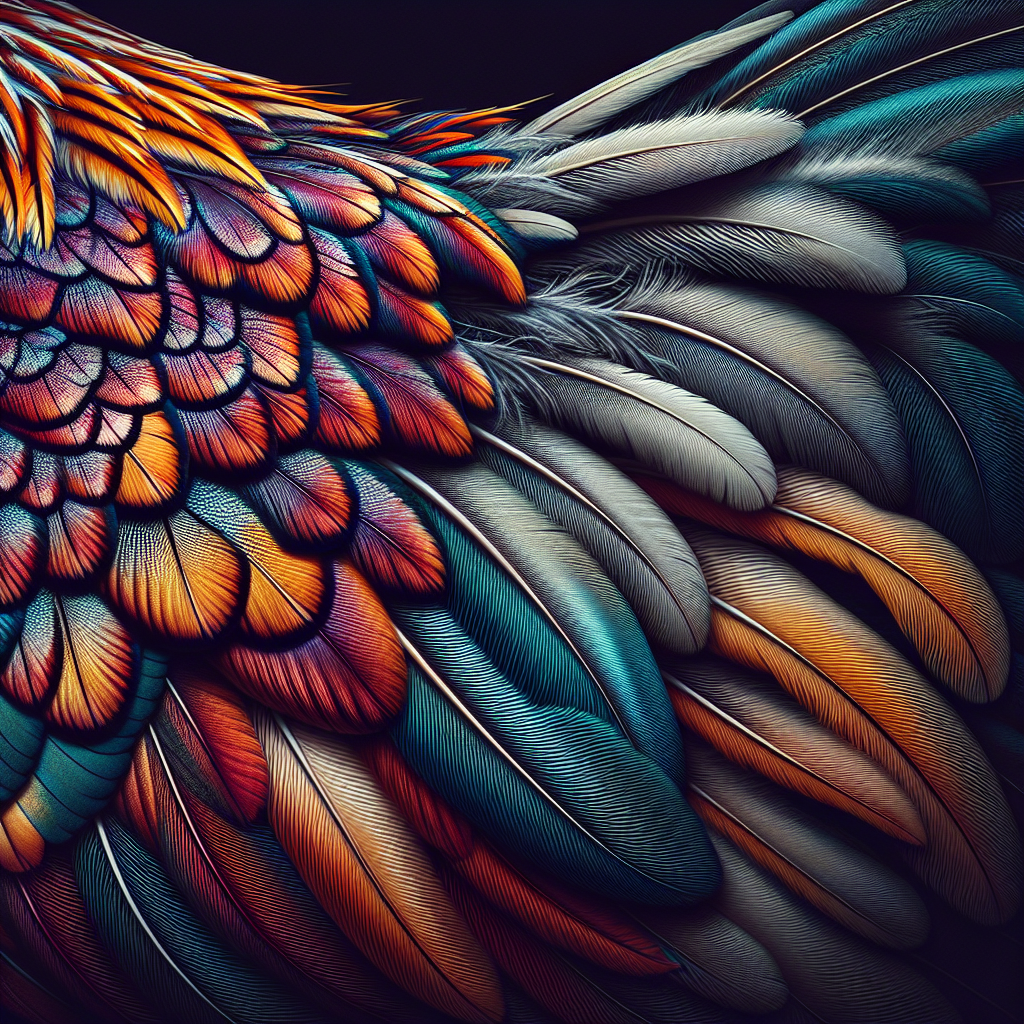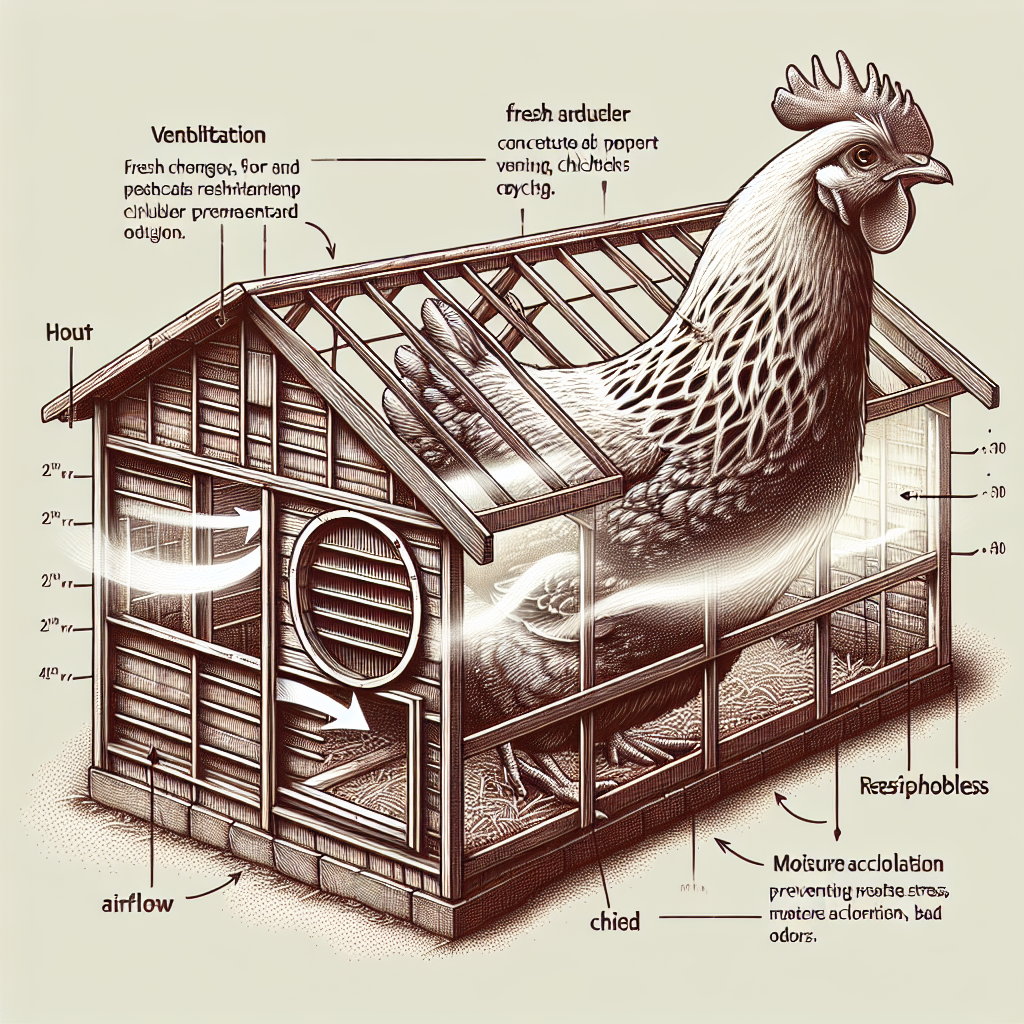Caring for your chickens involves more than just feeding them and providing a comfortable coop. Routine health checks are crucial to ensuring the well-being of your feathered friends. By regularly examining and monitoring your chickens, you can detect any potential health issues early on, preventing them from becoming serious. From checking their weight and body condition to inspecting their feathers and examining their droppings, these simple yet effective health checks will help keep your chickens healthy and happy. So, let’s dive into the essential routine health checks every chicken owner should know!
1. Physical Examination
Performing regular physical examinations is essential for ensuring the overall well-being of your chickens. Here are some key areas to focus on during these examinations:
Visual Inspection
A thorough visual inspection of your chickens allows you to spot any abnormal physical appearances or signs of distress. Look for any visual cues like disheveled feathers, abnormal coloration, or injuries. Additionally, observe their behavior and activity levels, as any sudden changes can indicate underlying health issues.
Body Condition
Assessing your chickens’ body condition is crucial for monitoring their health. Gently feel their breast muscles and ensure that they have adequate flesh covering them without being overweight or underweight. A healthy chicken should have a plump, firm, and well-muscled body.
Breathing
Pay close attention to your chickens’ breathing patterns. Their breathing should be relatively quiet, with no wheezing, sneezing, or gasping for air. Labored breathing or any unusual sounds while breathing can be signs of respiratory problems or infections.
Eye and Nose Discharge
Check for any abnormal discharge around your chickens’ eyes and nose. Discharge that is excessive, discolored, or foul-smelling can indicate an infection or respiratory issue. Healthy chickens should have clear and dry eyes and nostrils.
Feathers and Skin
Inspect your chickens’ feathers and skin regularly. Look for signs of mites, lice, or other external parasites that can cause discomfort or disease. Healthy feathers should be clean, shiny, and free from bald patches or excessive molting.
Legs and Feet
Examine your chickens’ legs and feet for any signs of injury, swelling, or abnormalities. Check for scales, as smooth scales indicate good health, while rough, peeling scales may indicate a leg mite infestation. Ensure that your chickens can walk and perch without difficulty.
Vent
Regularly inspect your chickens’ vent area for any signs of blockage or abnormal discharge. The vent should be clean and free from feces or any masses that may obstruct proper bowel movements. Blockages or abnormalities in this area can cause discomfort and digestive problems.
Crop
Assess your chickens’ crops, which are located near the base of their necks, for signs of impaction or abnormal swelling. A healthy crop should feel relatively soft and pliable, without any firm or hard masses. Abnormalities in the crop can indicate digestive issues or blockages.
Wings
Check the wings of your chickens for any signs of injury or unusual growths. Make sure they are properly tucked against their bodies and can still flap them freely. Any inability to fly or wing abnormalities may indicate underlying health problems or injuries.
Sick or Injured Birds
If you notice any chickens showing signs of illness or injury during the physical examination, it is crucial to separate them from the rest of the flock immediately. This prevents potential spread of diseases and allows for proper care and treatment of the affected bird.
2. Parasite Control
Parasites can significantly impact the health and well-being of your chickens. Both external and internal parasites must be addressed to ensure the overall health of your flock.
External Parasites
Regularly check your chickens for external parasites such as mites, lice, fleas, or ticks. These pests can cause skin irritations, feather loss, anemia, and transmission of diseases. Use appropriate poultry-specific treatments to control and prevent infestations, ensuring the well-being of your flock.
Internal Parasites
Internal parasites like worms are common in chickens and can cause significant harm if left untreated. Conduct regular fecal tests to check for the presence of internal parasites and consult with a veterinarian for appropriate deworming protocols. Regular deworming will help keep your chickens healthy and reduce the risk of complications.
3. Nutrition and Feeding
Proper nutrition is vital for maintaining your chickens’ well-being. Pay attention to the quality of feed, water supply, and the use of supplements and treats.
Feed Quality
Ensure that your chickens receive a balanced and nutritious diet. Choose a high-quality commercial feed that is appropriate for their age and purpose (e.g. laying hens, meat birds). The feed should contain the necessary vitamins, minerals, and protein to support their overall health.
Water Supply
Supply fresh and clean water to your chickens at all times. Ensure that their water containers are regularly cleaned and free from contaminants. Hydration is crucial for bodily functions and aids in digestion, egg production, and overall well-being.
Supplements and Treats
Consider incorporating nutritional supplements and treats into your chickens’ diets. These can provide additional vitamins, minerals, or natural remedies to meet specific needs, such as boosting immune health or promoting calcium absorption for strong eggshells. However, be cautious not to overfeed or offer inappropriate treats that may lead to nutritional imbalances or obesity.
4. Vaccinations
Vaccinations play a crucial role in preventing the spread of diseases and ensuring the health of your flock. Consult with a veterinarian to determine the appropriate vaccination schedule for your specific region and chicken breeds.
Common Vaccines
Common vaccines for chickens include vaccines against Marek’s disease, Newcastle disease, Fowlpox, and Avian Influenza. These vaccines offer protection against potentially devastating diseases and should be administered as recommended. Keep detailed records of vaccinations to ensure they are up-to-date.
5. Disease Monitoring
Monitoring your chickens for signs of disease is essential for early detection and intervention. Regularly observe their behavior, egg quality, weight changes, droppings, and respiratory health.
Behavioral Changes
Pay attention to any significant changes in your chickens’ behavior. This may include lethargy, decreased appetite, increased aggression, or disinterest in social interactions. Behavioral changes can be early indicators of underlying health issues.
Egg Quality and Production
Monitor the quality and production of eggs closely. Abnormal eggshells, changes in size, soft-shelled eggs, or a sudden decrease in egg output can indicate health problems, nutritional deficiencies, or stress.
Weight Loss or Gain
Regularly weigh your chickens to track their weight. Sudden weight loss or gain can be indicative of various health conditions, such as parasites, nutritional imbalances, or diseases. Maintaining a healthy weight range is crucial for their overall well-being.
Diarrhea or Abnormal Droppings
Examine your chickens’ droppings for any signs of abnormality. Watery, bloody, or discolored droppings can be signs of digestive problems, parasitic infections, or disease. Healthy droppings should have a well-formed shape, with a balance of solid feces and white urates.
Respiratory Issues
Listen for any abnormal sounds during your chickens’ breathing or observe signs of respiratory distress like coughing, sneezing, or wheezing. Respiratory issues can indicate infections or diseases that require immediate attention.
6. Reproductive Health
For those raising chickens for egg production or breeding, monitoring their reproductive health is crucial. Watch for any issues related to egg-laying, egg-binding, broodiness, and reproductive disorders.
Egg-Laying
Monitor the frequency and quality of egg-laying. Ideally, hens should lay eggs with consistent shell quality and have regular and predictable laying patterns. Any significant changes in egg-laying patterns or difficulties in laying eggs may indicate reproductive health issues.
Egg-Binding
Egg-binding occurs when a hen is unable to pass an egg, leading to potential complications. Watch for signs of distress, lethargy, or straining while attempting to lay an egg. If you suspect egg-binding, seek immediate veterinary assistance to prevent possible complications.
Broodiness
Some hens may go into a broody state where they exhibit nesting behavior and attempt to hatch eggs. While this is a natural behavior, prolonged broodiness can affect a hen’s health and disrupt egg production. Monitor broody hens closely and intervene if necessary to prevent adverse health effects.
Reproductive Disorders
Keep an eye out for any signs of reproductive disorders, such as tumors, infections, or abnormalities in the reproductive organs. These disorders can disrupt egg production, fertility, or result in general discomfort for the hen.
7. Environmental Factors
The environment in which your chickens live can greatly impact their health and well-being. Consider the following aspects when ensuring optimal environmental conditions.
Cleanliness and Sanitation
Maintain clean and hygienic living conditions for your chickens. Regularly remove manure, spilled feed, and any other debris that can harborm potential disease-causing agents. Clean and disinfect coops and equipment regularly to minimize bacterial and viral contamination.
Temperature and Lighting
Provide appropriate temperature and lighting conditions for your chickens. Ensure adequate ventilation and insulation to prevent extreme temperature fluctuations. Provide a well-lit environment that aligns with their natural circadian rhythms to support their overall health.
Ventilation
Proper ventilation is crucial for maintaining good air quality within the coop. Ensure sufficient airflow to prevent the buildup of harmful gases and moisture, which can lead to respiratory problems and microbial growth.
Predator Protection
Take measures to protect your chickens from potential predators such as dogs, raccoons, and birds of prey. Secure their enclosures with sturdy fencing, covers, and nets to prevent attacks. A safe and secure environment promotes peace of mind and reduces stress for your flock.
Space Requirements
Ensure that your chickens have adequate space in their living area. Overcrowding can lead to stress, aggression, and the spread of diseases. Provide enough room for your chickens to move freely, perch, and engage in their natural behaviors.
8. Biosecurity Measures
Maintaining proper biosecurity practices is vital for preventing the introduction and spread of diseases within your flock.
Isolation
When introducing new chickens to an existing flock, quarantine them for a period of time to prevent the potential spread of diseases. Isolate sick or injured birds from healthy ones until they have fully recovered to avoid transmission of infections.
Visitor Control
Control and limit access to your chicken area to prevent the introduction of potential diseases. Inform visitors of proper biosecurity measures, such as washing hands before and after handling chickens and wearing dedicated footwear to avoid contamination.
Equipment Disinfection
Regularly clean and disinfect equipment, tools, and surfaces used in the care of your chickens. Disinfecting feeders, waterers, and other equipment minimizes the risk of pathogens spreading within the flock.
Proper Fencing and Enclosures
Ensure that your chicken enclosures are secure and provide adequate protection. Check for any gaps or vulnerabilities that may allow the entry of predators or wild birds that can introduce diseases to your flock.
9. Injury Prevention
Taking steps to prevent injuries is essential for maintaining your chickens’ well-being.
Proper Handling
Handle your chickens with care and gentleness to avoid causing avoidable injuries. Learn proper handling techniques to minimize stress and the risk of bone fractures or bruising. Avoid grabbing or squeezing the birds tightly, as this can lead to harm.
Avoidance of Sharp Edges
Regularly inspect your coop and fencing for sharp edges, protruding nails, or other potential hazards. Smooth or cover any sharp edges to prevent injuries such as cuts or abrasions.
Safe Housing
Ensure that your chicken housing is secure and free from hazards that can cause injury. Provide proper roosting spaces, nest boxes, and ramps to minimize falls or mishaps. Regularly check bedding material for cleanliness and replace as needed to prevent bacterial and fungal growth.
10. Regular Monitoring and Record-Keeping
Maintain a diligent monitoring system and thorough record-keeping to track your chickens’ health and identify any potential patterns or concerns.
Observation and Documentation
Regularly observe and interact with your flock to identify any changes in behavior, appearance, or production. Document any abnormalities, such as diarrhea, injuries, or changes in appetite. This helps in detecting health issues early and provides valuable information for veterinarian consultations.
Health Records
Maintain detailed health records for each chicken, including vaccination history, deworming schedules, and any medical treatments or diagnoses. These records help track the flock’s overall health and provide relevant information for future flock management.
By adopting a comprehensive approach to routine health checks, you can ensure the overall well-being of your chickens. Regular physical examinations, parasite control, proper nutrition, vaccination protocols, diligent disease monitoring, reproductive health evaluations, attention to environmental factors, biosecurity measures, injury prevention, and consistent monitoring and record-keeping are key components to safeguarding and promoting the health of your feathered friends.




